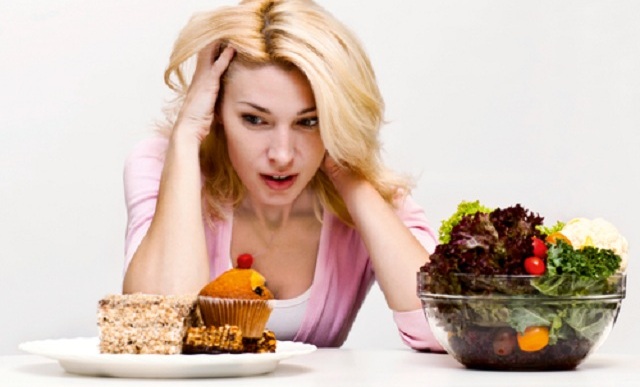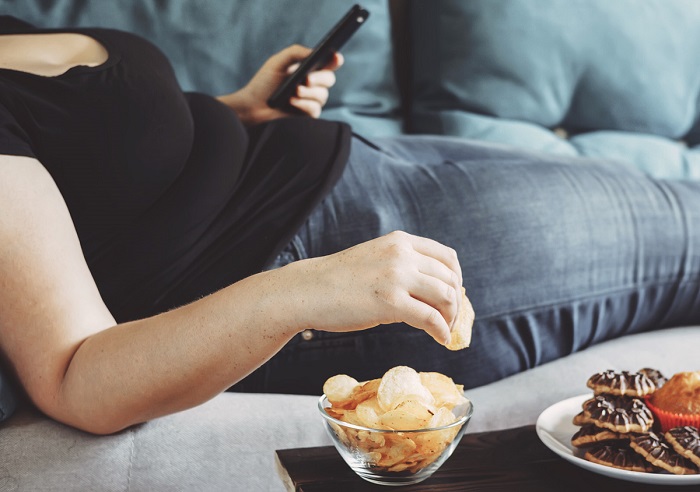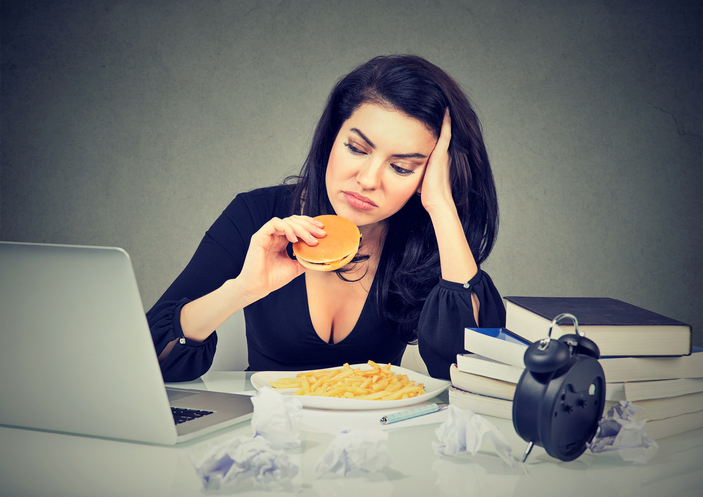Stress can make a person behave in queer ways. Emotional eating is one important method by which people react to stress. Emotional eating is the act of seeking solace in food. The condition is statistically more common in women than men, although most people will reach for food at some point in their lives as a way of coping with a trying time – when they are feeling down, depressed or temporarily in need of comfort. The trigger could be anything from relationship or health worries to work or financial difficulties.
Emotional eating becomes a problem when the eating itself is done in lieu of experiencing the emotion, that is, when you eat “in order to suppress, distract from or overcome difficult emotions”, says Dr Catherine Frogley, clinical psychologist at the LightHouse Arabia well-being centre.

Frogley defines the relationship a person has with food as complex. “Food is essential for our survival and therefore we all have a biological need for it. Its necessity means that, on a psychological level, food often signals safety, security and comfort”, she says.
Science behind emotional eating
Complex as the relationship may be, the biochemistry between stressful situations and our desire to reach for food is relatively straightforward. Stress causes the adrenal glands to produce more of the stress-response hormone, cortisol. And cortisol not only increases appetite, but also motivation, making for a double whammy when it comes to eating: creating both the craving for food and the impulse to consume it.
In the short-term, stress can suppress the appetite as the nervous system signals the adrenal glands to produce adrenalin, which triggers the body’s fight-or-flight response and puts the appetite on hold. Problems arise, however, when stress persists. Then the adrenal glands switch to producing cortisol, which increases appetite. Prolonged stress can keep a person’s state of stress stuck in the “on” position, keeping cortisol levels elevated.

Ironically, physical satisfaction has little or nothing to do with emotional eating. “Emotional eaters view food as something that gives pleasure and excitement, rather than something that satisfies hunger.
Pandemic and emotional eating
Unsurprisingly, the coronavirus pandemic has been a trigger for emotional eating among many. The internet might be awash with jokes and memes about people spending their lockdowns eating so much they now only fit into clothes with elasticated waistbands, but behind the humour are some sobering statistics.
A recent YouGov survey, of more than 2,000 people commissioned by the British Nutrition Foundation, which looked at how Covid-19 has affected diet and fitness, revealed that 27 per cent of people admitted they were eating less healthily, and 48 per cent did not feel “motivated” enough to eat well. “Boredom” was cited by 63 per cent of respondents as the main reason they were eating unhealthier foods.

“It is likely we are all experiencing elevated amounts of anxiety, loneliness, anger or even boredom at the moment, which may make some people more vulnerable to engaging in these types of behaviours,” says Nadia Brooker, an eating disorder psychologist at the Priory Well-being Centre in Dubai. “Using food as an emotional crutch can quickly become the norm and may lead to disordered eating patterns”, she continued.
Effect on physical health
Emotional eating is more prevalent among those who are overweight, with Frogley citing a study that showed 60 per cent of those who are overweight are also classified as emotional eaters. However, she adds: “You don’t have to be overweight to be an emotional eater. In fact, emotional eating can also affect those who suffer from disordered eating, who may in fact be underweight.”
One of the main reasons a majority of emotional eaters are overweight, though, is because of the types of foods most seek comfort in. “Typically, feel-good foods that people tend to crave are sugary and carb-rich, such as chocolate, crisps or sweets,” says Brooker.




![The Top & Most Popular Seafood Bucket Restaurants in Dubai for you [Never Miss]](https://uae24x7.com/wp-content/uploads/2020/09/8-seafood-in-a-bucket-scaled-e1600739237403.jpg)
![Procedures for Renewing the Driving License in Abu Dhabi [3 Simple Steps]](https://uae24x7.com/wp-content/uploads/2020/07/Capture-9-e1595666454466.jpg)





